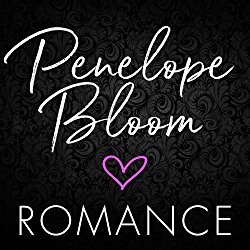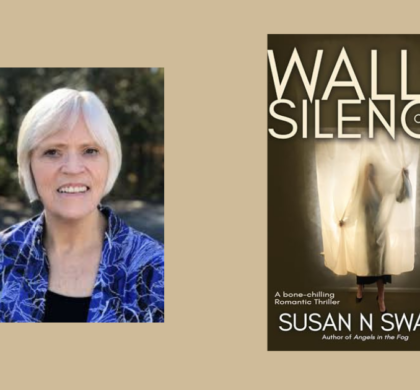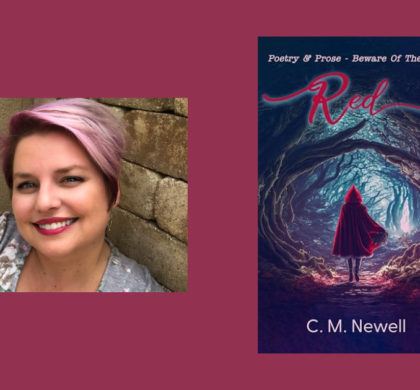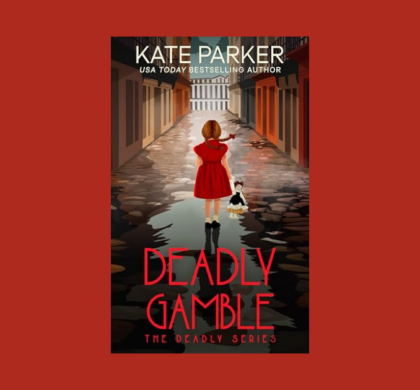The Story Behind Hate at First Sight by Penelope Bloom
18 Jun 2018
By Penelope Bloom
I think there’s a common misconception about authors. It’s something I’m guilty of when it comes to my favorite authors, even though I should know better.
So what am I talking about?
We assume authors are static. The books they produce are products of a static mind and a person who lives a stable, predictable life. I doubt anyone actually believes that if they think about it, yet my point is that most of us don’t think about it.
Hate at First Sight, for me, is the book that proves authors aren’t static. We can grow. Our lives can influence the book, and the things we’re struggling with and trying to overcome in our personal lives will absolutely bleed into the book and make it richer in the process.
I’ve had a few of my early reviewers tell me this was hands down their favorite book they’ve ever read from me. The funny part was that they told me with a kind of tentative vibe, like they worried I’d be offended. After all, if my newest book is their favorite, they are saying my older books weren’t as good. But why would I ever be upset about that? My goal is always to grow. To learn from mistakes and missed opportunities in past books to continue making better and better stories. Sometimes it happens in small steps, and other times it’s a big, stylistic leap.
What made this book different?
The mood I’m in when I write has so many effects on the overall tone of the story. If I’m feeling carefree and happy, it’s extremely difficult to write a dark, angsty story. If I’m feeling dark and angsty, the reverse is true.
This book was born out of one of the roughest patches I’ve gone through as an author. I’ve had ups and downs in my career, but the downs have generally never stretched more than two or three months, where I might string together a few books in a row that underperform. With the way the earnings from books fall off through Kindle Unlimited, that means I can go from comfortably earning enough to support my family one month, to worrying if we’re going to be eating canned tuna the next month. So needless to say, having two or even three books flop in a row starts to put an incredible amount of financial stress on me and my family.
My last few books struggled, and I’ve spent a few months doing some soul searching. Phase one was to feel hopeless. I thought I had written the kind of book that readers had loved from me in the past, and I’d even tried to really study my own past books and try to stay true to that style. I tried to make my covers look like my older covers because I was worried I’d strayed too far from what my readers were used to. I tried it, and it didn’t really work.
Around the time I started planning this book, I made the decision that I shouldn’t try to chase what worked in the past. I had lost sight of the real goal. I should be growing with every book. My readers aren’t static, just like I’m not, after all. So I made a new goal. I wanted to write the best book I’ve ever written. I didn’t just want to stick to the same style and sort of blueprint for a book that I’ve been using. I wanted to break my own mold and exceed not just my expectations, but my reader’s expectations.
The biggest change for me was my productivity. Instead of struggling to string together 1000 or 2000 words a day for the first two weeks of my month and then scrambling to finish at the last minute, I forced myself to stay ahead. I had enough time to constantly go back and re-read, tweak, add, and polish previous chapters as I was writing. I also had time to make the story much longer than I ever have before at 68,000 words (compared to my usual of 45,000 to 50,000).
The other change was trusting my readers more. I really hope this doesn’t come off as insulting in any way, but one of the harder things to do as a writer is to trust your readers. For example, if I have a character reveal a very important part of their personality through something they say that might be subtle, can I trust my readers to pick up on that, or do I need to spell it out for them, too? In the past, I got so hung up on the fear that someone might miss it, that I usually would go ahead and spell it out just to be safe. This time, I trusted my readers more, in every way. I trusted readers to be willing to read about some sensitive topics, to give Zach (the hero) a chance to redeem himself even when he seemed entirely un-redeemable, and to read between the lines.
Final Thoughts
I hope the reaction to this post isn’t to feel like I’m bragging about my book. Technically speaking, I know I did, but at the same time, it feels like bragging about one of your kids. I don’t feel entirely responsible for how it turned out, but I am proud of the part I played in guiding it along to where it ended up. I’m proud of what it turned into and how it developed. I hope you agree with me that there’s nothing wrong with being proud of something you poured your energy and your emotions into.
I know this book is always going to have a very, very special place in my heart. And if, God forbid, I have to step away from writing at some point because I can’t support my family anymore, I know I’ll look at Hate at First Sight as either the high point in my catalog, or (hopefully) the turning point where I really started to break out and write the books I was meant to write.
So needless to say, it would mean the world to me if you read it, especially if you leave a review. Whether you love it or hate it, I read every single review, and I take them all to heart. It’s a huge part of how I develop and make a plan of attack for my next book.

Penelope Bloom is the author of the new book Hate at First Sight.
Connect with Penelope:
Author Page
Buy The Book
Sign up for our email and we’ll send you the best new books in your favorite genres weekly.


